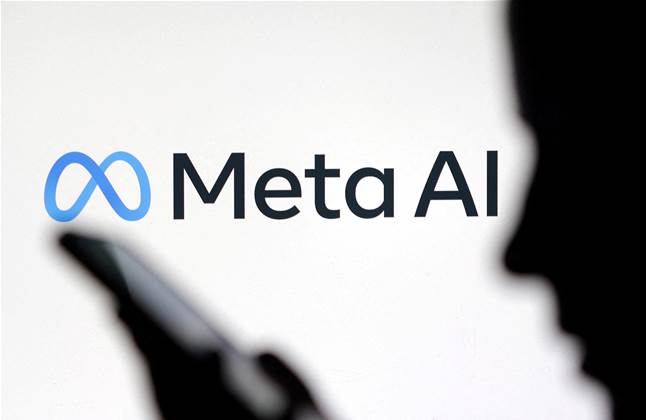Meta
NEW YORK: Meta, the owner of Facebook, has announced significant changes to its policies regarding digitally created and altered media ahead of the upcoming US elections, which will serve as a test for its ability to combat deceptive content generated by new artificial intelligence (AI) technologies.
In a blog post, Vice President of Content Policy Monika Bickert revealed that Meta will begin implementing “Made with AI” labels next month for AI-generated videos, images, and audio shared on its platforms.
This expansion of the policy, which previously focused on a limited subset of manipulated videos, aims to provide users with transparency regarding the origin of such content.
Furthermore, Meta plans to introduce separate and more prominent labels for digitally altered media that poses a high risk of materially deceiving the public on significant matters. These labels will apply irrespective of whether the content was created using AI or other tools.
This shift in approach marks a departure from Meta’s previous strategy of primarily removing manipulated content. Instead, the company will keep such content accessible while informing viewers about its creation process.
Previously, Meta announced a scheme to detect images produced using third-party generative AI tools using invisible markers within the files, though it did not specify a start date. The new labeling approach will apply across Meta’s platforms, including Facebook, Instagram, and Threads.
The more prominent “high-risk” labels will be implemented immediately, according to a company spokesperson.
These changes arrive ahead of the US presidential election in November, as tech researchers anticipate the potential impact of emerging generative AI technologies on political campaigns.
Meta’s existing rules on manipulated media were criticized by its oversight board in February as “incoherent” after reviewing a video of US President Joe Biden on Facebook.
Despite alterations suggesting inappropriate behavior, the footage remained online, as Meta’s policy at the time only addressed misleadingly altered videos produced by AI or those manipulating speech.
These policy adjustments reflect Meta’s ongoing efforts to address evolving challenges related to deceptive content on its platforms.
I am a dynamic professional, specializing in Peace and Conflict Studies, Conflict Management and Resolution, and International Relations. My expertise is particularly focused on South Asian Conflicts and the intricacies of the Indian Ocean and Asia Pacific Politics. With my skills as a Content Writer, I serve as a bridge between academia and the public, translating complex global issues into accessible narratives. My passion for fostering understanding and cooperation on the national and international stage drives me to make meaningful contributions to peace and global discourse.










